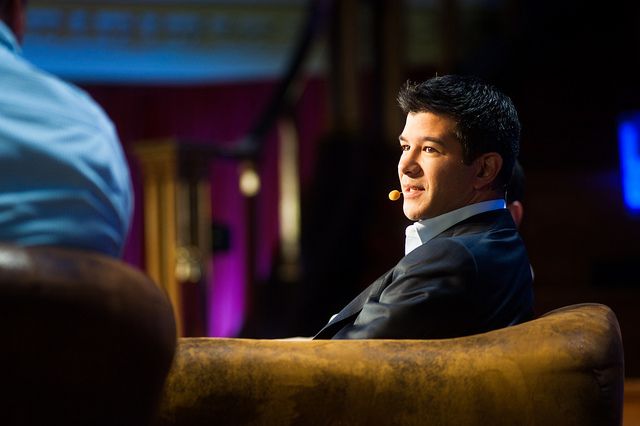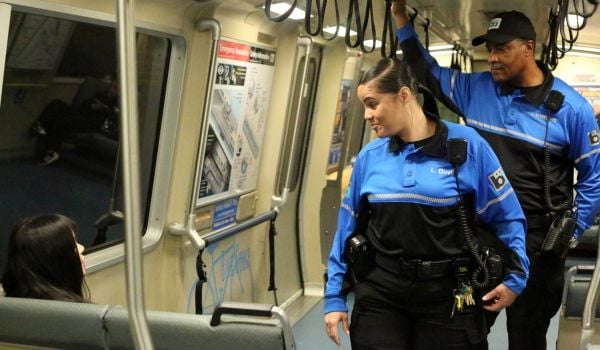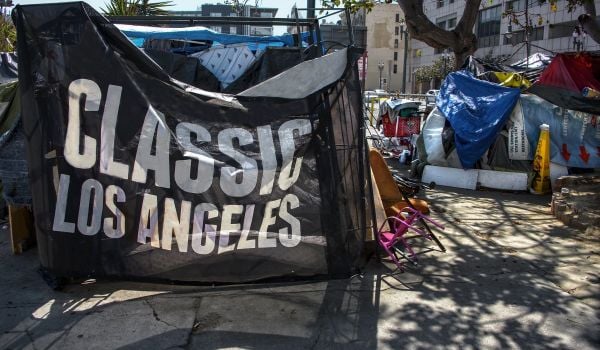A taxi industry that “plays dirty,” and city regulators who for decades have been willing to engage it in “backroom deals,” said Uber CEO Travis Kalanick at last week’s State of the Net conference in Washington, D.C., are increasingly being outmatched by his savvy start-up and a customer base that loves its on-demand car service.
Uber’s skill in tapping into that demand at a moment’s notice, Kalanick argued, has made it the author of a playbook that other disruptive new services, undaunted by existing rules and regulations, increasingly follow.
Launched in its current form in San Francisco in 2010, Uber is an app-driven private car service that makes use of abundant public data to rethink the car-hiring experience. “You push a button and in five minutes a town car arrives,” Kalanick explained. But the nuances behind the scenes distance Uber from a traditional taxicab or car service transaction. Trips are prepaid on a stored credit card, and the arriving car can be tracked via elegant maps. Passengers rate drivers, and drivers rate passengers.
Uber has expanded to about two dozen cities across the U.S. The service has been knocked, though, by the charge that it amounts to an illegal taxi operation or unregulated car service. Crackdowns on Uber have taken place in San Francisco, Chicago, Boston and Vancouver, among other cities.
“What we do these situations,” said Kalanick, “is that we go big on social media.” When a flare-up occurs, “we tell our customers in the city, ‘Be active. Speak up. Send an email to an elected official or a regulator.’” He described a business model where a company’s best asset isn’t killer technology, but a robust email list. Uber, for one, nails subscribers as soon as they sign up for the service.
Throughout the conference, put on by the Advisory Committee to the Congressional Internet Caucus and attended by a handful of elected officials and a giant helping of regulators, Kalanick pulled few punches, calling the modus operandi of many a local government “egregious, anticompetitive” behavior.
In it all, he found an ally in his interviewer: Rep. Bob Goodlatte, a Virginia Republican and the brand new chairman of the powerful House Judiciary Committee.
It might have been Uber’s service, especially as compared to the District’s notoriously unreliable taxi situation. (Goodlatte praised the fact that his first Uber experience — that morning, from Capitol Hill to the conference hotel — turned up a car in just three minutes.) It might have been the bottom-up business model, one Goodlatte characterized as “an amazing transformation of something that has been done one way a long, long time and can now be done much better because of technology.” And it might have been Kalanick’s seeming affinity for deregulation.
But on a day chock-full of talk about the enormous outbreak of public attention that stopped dead the Stop Online Piracy Act in, yes, the House Judiciary Committee, Goodlatte seemed deferential to the new power of an organized and networked user base to shape public policy on matters once considered esoteric.
“I hear that works sometimes,” joked the congressman.
“It does,” said Kalanick.
The case study of Uber harnessing its fans to fight back against city crackdowns is set in the District itself. Last summer the city council floated an “Uber amendment” that would have required sedans to charge higher rates than taxicabs, to be voted on in short order.
“I typed an email very quickly,” Kalanick explained to Goodlatte. Sent to their customers in D.C., it produced, by the CEO’s count, 50,000 hand-crafted emails to the city council, as well as 37,000 tweets and more than 100 million social media impressions, or viewings.
For a day or two, a tweaking of longstanding taxicab regulations became one of the most talked-about topics in the nation’s capital.
The provision’s lead sponsor, Democrat Mary Cheh, said that Kalanick was misrepresenting an amendment that his company had helped craft. Nonetheless, it was yanked.
Uber’s rallying of its distributed network of allies over a seemingly “pet” issue mirrors a trend being witnessed elsewhere in politics. To pick one example, critics of a line buried in recent Republican budget proposals that would cut funding to the low-profile Corporation for National and Community Service targeted former AmeriCorps volunteers and those who appreciated their service. A fuss was raised, and the idea has lost steam.
In Massachusetts this past summer, the state Division of Standards issued a cease-and-desist against Uber, citing a supposed lack of appropriate federal guidelines on the use of GPS in calculating fares. Once again, a fuss was raised, Gov. Deval Patrick stepped in and regulators rolled back the decision.
In the Boston case, “we didn’t have to actually send an email,” said Kalanick. “We call that the nuclear option.”
That he has it to unleash, said Kalanick, will hugely shape how cities function.
Take the ins-and-outs of taxicab regulation. “None of us knew about that in the world that existed five or 10 years ago,” he said, “but it affects us. It affects city life.” Now, “somebody like us can connect our customers to those regulators through things like Twitter and Facebook and etcetera. There’s just a huge, massive increase in accountability.” The fact that regulators and elected officials are proving responsive to it makes him, Kalanick said, “less cynical about city government.”
Not everyone is following the Uber playbook. Hailo, a competitor of sorts, has said that it is, at least for the moment, closely sticking to existing rules when it goes into new cities.
But that, too, is recognition of a changing landscape. Until recently, the story of where tech companies meet lawmaking has been one of avoidance until the last possible minute. Now it’s increasingly proactive and targeted engagement in the very early stages. Case in point: Uber announced last week that it was hiring Facebook’s Corey Owens as its new director of public policy.
He’ll likely stay busy. There are, after all, a lot of cities.

Nancy Scola is a Washington, DC-based journalist whose work tends to focus on the intersections of technology, politics, and public policy. Shortly after returning from Havana she started as a tech reporter at POLITICO.




_600_350_80_s_c1.jpg)











